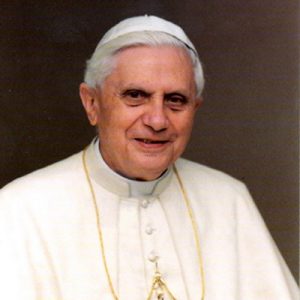 On January 24, Pope Benedict XVI shared his message for World Communications Day: “Truth, Proclamation and Authenticity of Life in the Digital Age.”
On January 24, Pope Benedict XVI shared his message for World Communications Day: “Truth, Proclamation and Authenticity of Life in the Digital Age.”
Writing for the Associated Press, Nicole Winfield, noted, “The 83-year-old Benedict is no techno wizard: He writes longhand and has admitted to a certain lack of Internet savvy within the Vatican.” His speech and actions, including significantly enhancing the Holy See’s online presence, are signs that while he may not personally be moving toward greater involvement in the digital world, he is aware of the importance of providing guidance to those who are. In the message, he said:
. . . there exists a Christian way of being present in the digital world: this takes the form of a communication which is honest and open, responsible and respectful of others. To proclaim the Gospel through the new media means not only to insert expressly religious content into different media platforms, but also to witness consistently, in one’s own digital profile and in the way one communicates choices, preferences and judgements that are fully consistent with the Gospel, even when it is not spoken of specifically. Furthermore, it is also true in the digital world that a message cannot be proclaimed without a consistent witness on the part of the one who proclaims it. In these new circumstances and with these new forms of expression, Christian are once again called to offer a response to anyone who asks for a reason for the hope that is within them (cf. 1 Pet 3:15).
So What?
While many Christians are writing (especially blogging) about ways to leverage digital media to achieve specific outcomes, far fewer are offering guidance to help frame what Pope Benedict XVI calls “a Christian way of being present in the digital world.”
- Do you agree with Pope Benedict XVI’s definition? Why/why not?
- Imagine you are called upon to write guidelines for a Christian way of being present in the digital world that will be shared with your congregation. What would you include and why?